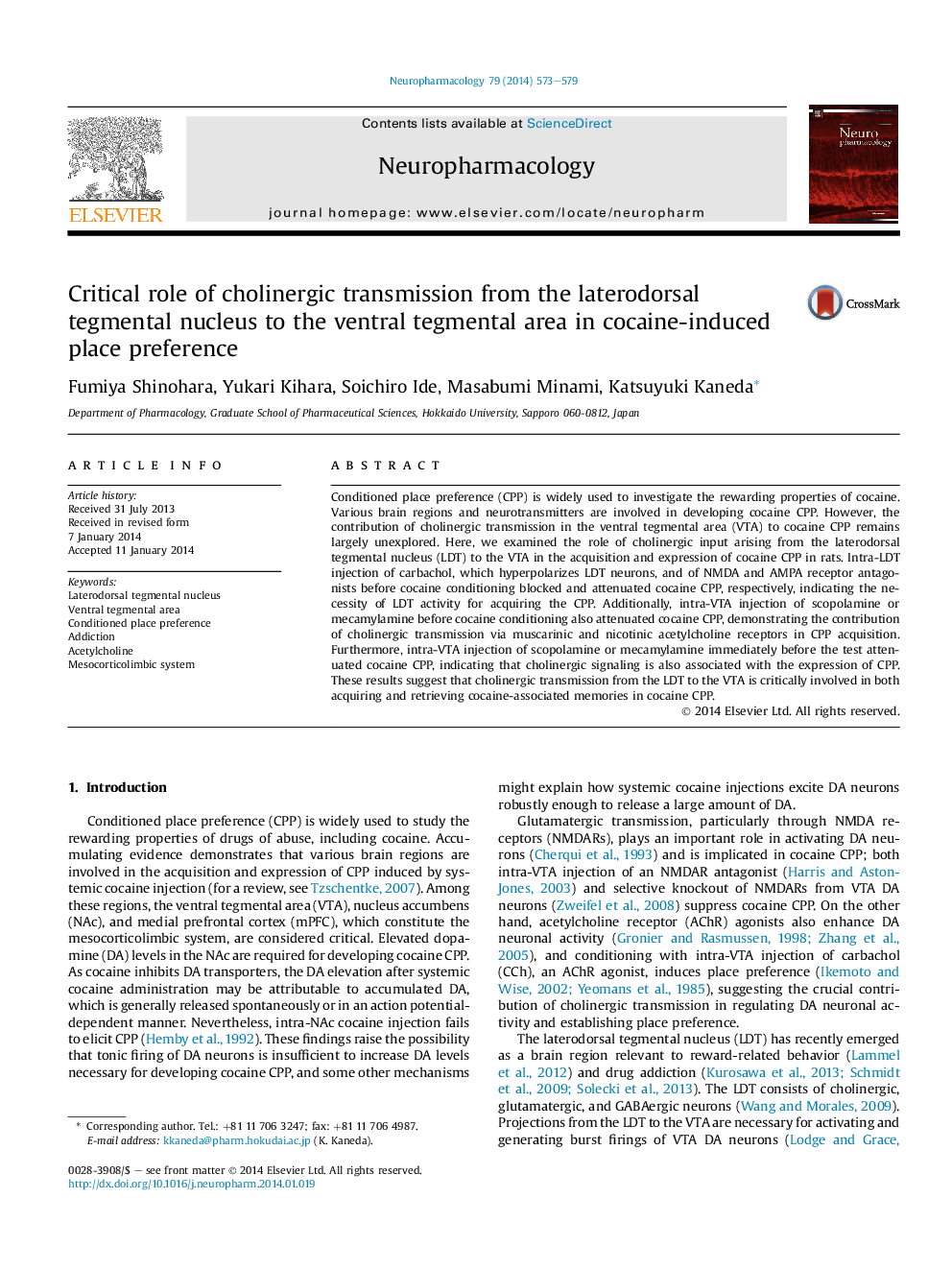| Article ID | Journal | Published Year | Pages | File Type |
|---|---|---|---|---|
| 5814681 | Neuropharmacology | 2014 | 7 Pages |
Abstract
Conditioned place preference (CPP) is widely used to investigate the rewarding properties of cocaine. Various brain regions and neurotransmitters are involved in developing cocaine CPP. However, the contribution of cholinergic transmission in the ventral tegmental area (VTA) to cocaine CPP remains largely unexplored. Here, we examined the role of cholinergic input arising from the laterodorsal tegmental nucleus (LDT) to the VTA in the acquisition and expression of cocaine CPP in rats. Intra-LDT injection of carbachol, which hyperpolarizes LDT neurons, and of NMDA and AMPA receptor antagonists before cocaine conditioning blocked and attenuated cocaine CPP, respectively, indicating the necessity of LDT activity for acquiring the CPP. Additionally, intra-VTA injection of scopolamine or mecamylamine before cocaine conditioning also attenuated cocaine CPP, demonstrating the contribution of cholinergic transmission via muscarinic and nicotinic acetylcholine receptors in CPP acquisition. Furthermore, intra-VTA injection of scopolamine or mecamylamine immediately before the test attenuated cocaine CPP, indicating that cholinergic signaling is also associated with the expression of CPP. These results suggest that cholinergic transmission from the LDT to the VTA is critically involved in both acquiring and retrieving cocaine-associated memories in cocaine CPP.
Keywords
Related Topics
Life Sciences
Neuroscience
Behavioral Neuroscience
Authors
Fumiya Shinohara, Yukari Kihara, Soichiro Ide, Masabumi Minami, Katsuyuki Kaneda,
